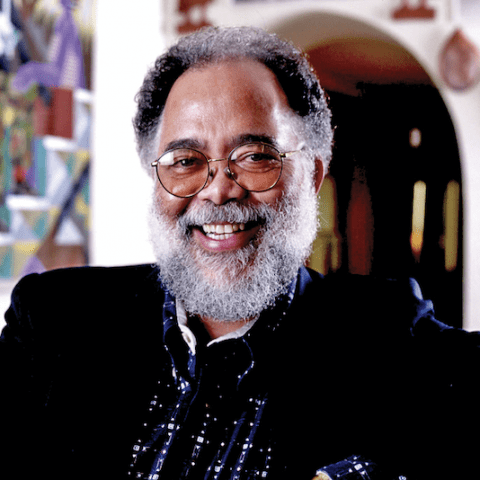John Rickford

John Rickford
Mini visit: September 29-30, 2022
Full visit: May 3-9, 2022
Full visit: September 16-22, 2018
- Professor of Linguistics, Emeritus, Stanford University
- J.E. Wallace Sterling Professor of the Humanities, Emeritus, Stanford University
- Professor of Education (by courtesy), Stanford University
- Bass University Fellow in Undergraduate Education, Stanford University
- ADW-PAL term: 2017-23
- Subject Area: Social Sciences
- Faculty host: Abby Cohn (Professor, Dept. of Linguistics)
John Rickford is a leading sociolinguist and world-renowned expert on African American Vernacular English (AAVE) and the study of linguistic variation and change. He is Professor of Linguistics emeritus and the J.E. Wallace Sterling Professor of the Humanities, Professor of Education (by courtesy), and a Bass University Fellow in Undergraduate Education at Stanford University.
Rickford is considered one of the towering figures in the linguistic and historical study of vernacular language in the African diaspora. He is one of the small number of scholars in the field–Noam Chomsky and William Labov—to deserve the title of leading research linguist and prominent public intellectual. His scholarly contributions run the gamut from important descriptive research on African-American Vernacular English (AAVE) and Caribbean varieties, to work of historical significance on the origins of AAVE, to research on AAVE syntactic patterns with important consequences for syntactic theory, to his current research demonstrating that basic linguistic misconceptions may influence major legal and political decisions, and that the automatic speech recognition systems used by Apple, Microsoft and other companies make considerably more errors with Black and Latin-X speakers than with White ones.
Since the 1970s he had worked to document AAVE and other varieties of English spoken throughout North America and the Caribbean, which has contributed significantly to the understanding of the grammatical regularities and structure of AAVE. He was a strong voice of reason during the national Ebonics debate when the Oakland School Board decided to recognize the vernacular of their African American students and use it in the teaching of Standard English.
Rickford’s recent work bridges the disciplines of social linguistics with legal studies, analyzing the adverse consequences of the misunderstanding of African American Vernacular English (AAVE) in criminal trials. Modern linguistics teaches that all varieties of human language are qualitatively equivalent, but this result does not stem from political correctness; it is the result of a century of linguistic research, including the work of Labov and Rickford and their colleagues over the past five decades on nonstandard North American Englishes. The basic inability to distinguish between linguistic difference and quality of thought or expression leads to tragic results in our courts and public discourse—this is best recognized most recently through his work relating to testimonies in the well-publicized Travon Martin murder investigation.
Among his numerous honors, Rickford was the President of the Linguistic Society of America (LSA) from 2015-2016, from which he was recently awarded the best paper in Language 2016 Award. Since 2017, Rickford has been a member of the American Academy of Arts and Sciences and was elected to the National Academy of Sciences in 2021. And in 2022, he was elected as a Fellow of the British Academy.
